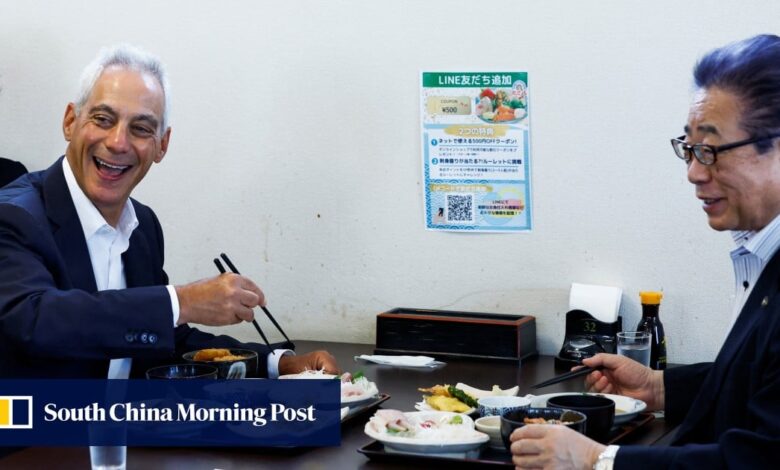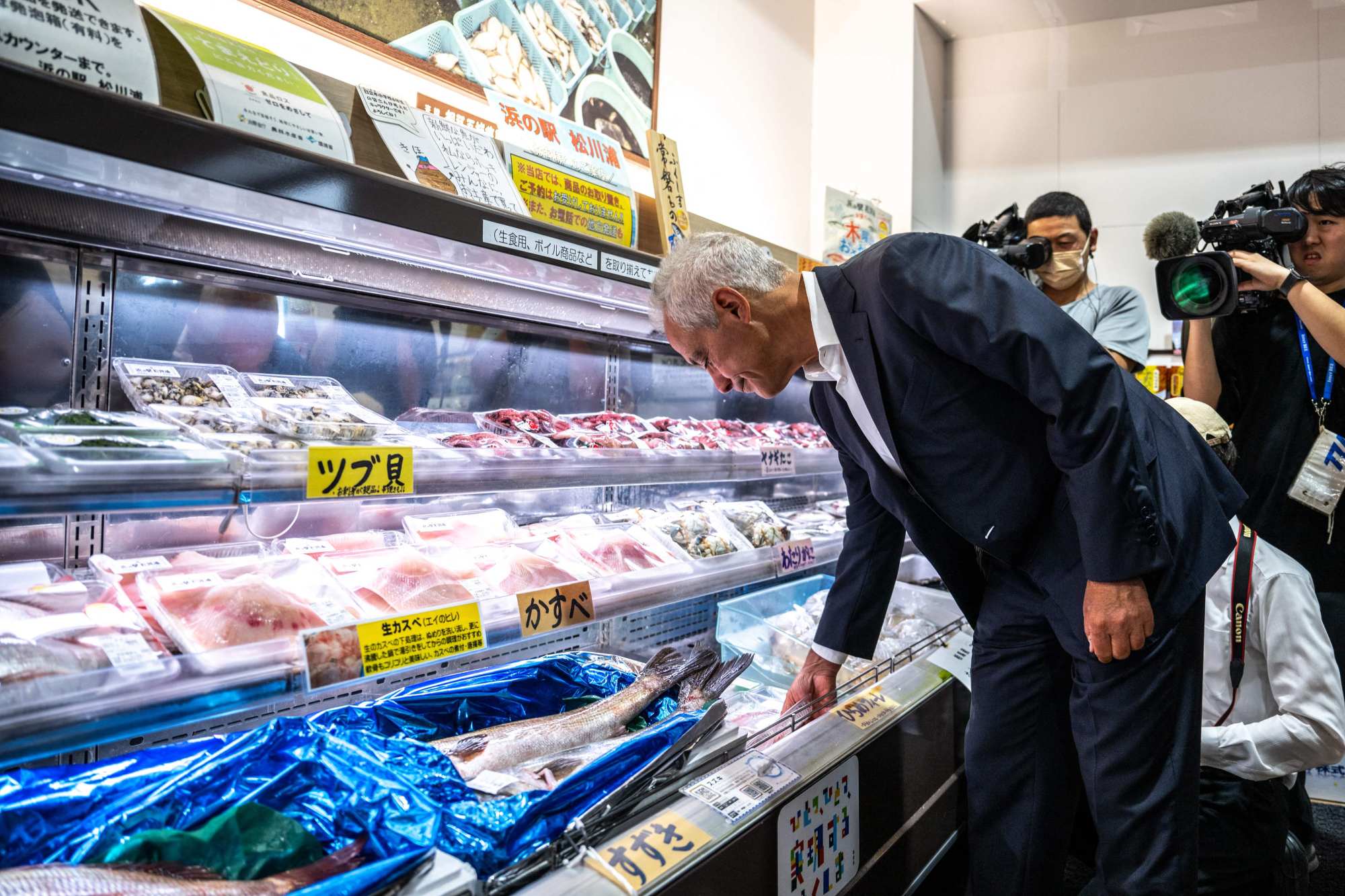US ambassador to Japan visits Fukushima, expects US support in China seafood ban spat

[ad_1]
United States ambassador to Japan Rahm Emanuel visited Fukushima on Thursday and told reporters he expected the US to support Japan should China’s ban on Japanese seafood develop into a spat at the World Trade Organization (WTO).
“If Japan decides to take that effort, the United States will stand by [it] not just because they’re an ally, but because there’s legitimacy to the case,” he said, although he added he cannot prejudge what would happen and such support would ultimately be up to the relevant US government agencies.
Japan started releasing treated radioactive water from the wrecked Fukushima nuclear power plant into the Pacific Ocean last Thursday, prompting China, Japan’s biggest trade partner, to impose a blanket ban on Japanese aquatic products.
Japan has since sought an immediate end to the ban and threatened to resolve the matter through the WTO framework. Japan has also complained of being inundated with harassment calls since the water release.
“The economic coercion against Japan, the robocalls of harassment and disinformation both here in Japan and around comes right out of China’s playbook. This is all politics,” Emanuel said.
Japan’s Prime Minister Fumio Kishida said he would compile measures to help the fishing industry hit by China’s ban on Japanese seafood, after visiting Tokyo’s biggest fish market on Thursday.
The government will tap additional funds, hundreds of millions of dollars, from the government’s budget reserves for the current financial year to fund the measures, the Nikkei reported.
Kishida told reporters following the visit to Toyosu fish market that requests from fishers included support to help fishing companies develop new sales avenues and holding discussions with China.
Tokyo’s government has set up two funds worth US$548 million to help develop new sales channels and keep excess fish frozen until they can be sold when demand recovers, among other measures. Officials have previously denied the possibility of additional fiscal measures for the industry.
Japan exported about US$600 million worth of aquatic products to China in 2022, making it the biggest market for Japanese exports, followed by Hong Kong, which announced its own ban on seafood imports from 10 Japanese regions after the Fukushima release.
Some Japanese officials have also signalled diplomatic actions to urge China to lift the ban, which Tokyo says is not based on scientific evidence, including filing a World Trade Organization (WTO) complaint.
Speak quietly in China, Japan warns citizens as Fukushima backlash grows
Speak quietly in China, Japan warns citizens as Fukushima backlash grows
Market research firm Teikoku Databank said more than 700 Japanese food exporters are affected by the China ban.
“Japan’s government is continuing monitoring to ensure the safety of local fish, so there is basically no impact on our goal to expand the fisheries production,” Takahisa Yamamoto, assistant director of policy planning division at Japan’s Fisheries Agency, said.
Japan aims to restore its annual fish catch to 4.4 million metric tons by 2030 from record lows last year, a Fisheries Agency official said, adding that no impact was expected from the release of water from the wrecked Fukushima nuclear plant.
Fisheries production, excluding fish farming, hit an all-time low of 2.92 million tons last year, down 9 per cent from a year earlier, which Yamamoto said was mainly due to a change in currents that pushed fish away from areas in which they were previously caught.

To restore the catch to 4.4 million tons – the level last seen in 2010, before a 2011 earthquake and tsunami that destroyed the Fukushima Daiichi nuclear plant, the agency plans to increase fish stock levels by implementing catch limits.
Other support for the industry includes helping to boost aquaculture and exports, Yamamoto said, as fish consumption is growing globally, unlike demand in Japan where people have been adding meat to their diets.
As Japanese’s eating habits become more like those in the West, fish consumption per person has nearly halved to 23kg in 2021 from 40kg in 2001, while meat consumption rose to 34kg from about 25kg.
[ad_2]
Source link


